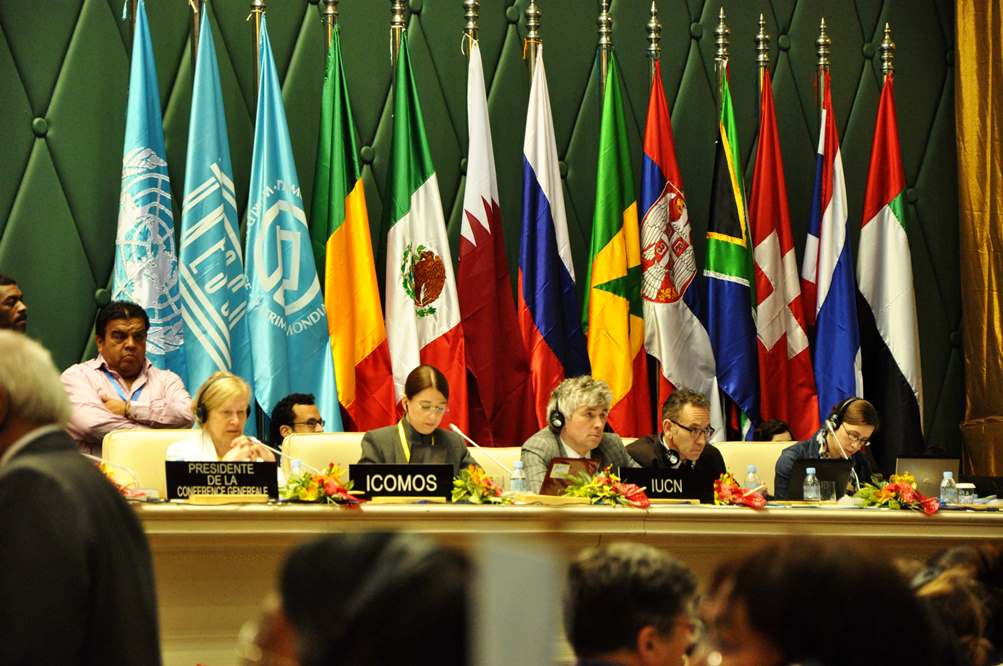To help maintain the highest possible standards in our delivery, IUCN's work on World Heritage is guided by three fundamental principles:
-
Partnership is paramount. All our activities are carried out in partnership with other organizations and stakeholders, particularly the World Heritage Centre, the other advisory bodies to the Convention (ICOMOS and ICCROM), and State Parties.
-
Sound science is essential. One of the Union's major strengths is its high level of scientific credibility, consistency and objectivity. We maintain this by drawing on the expertise of our scientific networks – particularly the WCPA and UNEP WCMC.
-
Problems require practical solutions. An important part of our work is to identify threats to World Heritage sites, but we aim to go beyond mere reporting to seeking practical and innovative solutions to address these threats.



